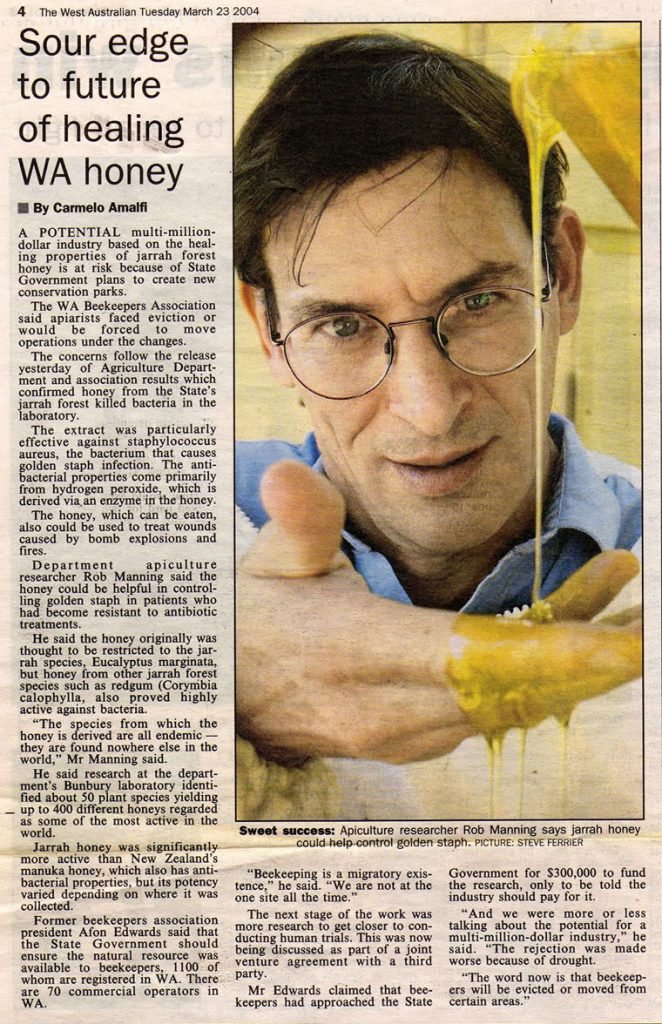A POTENTIAL multi-million-dollar industry based on the healing properties of jarrah forest honey is at risk because of State Government plans to create new conservation parks. The WA Beekeepers Association said apiarists faced eviction or would be forced to move operations under the changes. The concerns follow the release yesterday of Agriculture Department and association results which confirmed honey from the State’s jarrah forest killed bacteria in the laboratory. The extract was particularly effective against staphylococcus aureus, the bacterium that causes golden staph infection. The anti-bacterial properties come primarily from hydrogen peroxide, which is derived via.an enzyme in the honey. The honey, which can be eaten, also could be used to treat wounds caused by bomb explosions and fires. Department apiculture researcher Rob Manning said the honey could be helpful in control-ling golden staph in patients who had become resistant to antibiotic treatments. He said the honey originally was thought to be restricted to the jar-rah species, Eucalyptus marginata, but honey from other jarrah forest species such as redgum (Corynibia calophylla, also proved highly active against bacteria. “The species from which the honey is derived are all endemic —they are found nowhere else in the world,” Mr. Manning said. He said research at the department’s Bunbury laboratory identified about 50 plant species yielding _ up to 400 different kinds of honey regarded as some of the most active in the world. Jarrah honey was significantly more active than New Zealand’s manuka honey, which also has anti-bacterial properties, but its potency varied depending on where it was collected. Former beekeepers association president Afon Edwards said that the State Government should ensure the natural resource was available to beekeepers, 1100 of whom are registered in WA. There. are 70 commercial operators in WA.
Sweet success: Apiculture researcher Rob Manning says jarrah honey could help-control golden staph. PICTURE: STEVE FERRIER
“Beekeeping is a migratory existence,” he said. “We are not at one site all the time.” The next stage of the work was more research to get closer to conducting human trials. This was now being discussed as part of a joint venture agreement with a third party. Mr. Edwards claimed that bee-keepers had approached the State
Government for 5300,000 to fund the research, only to be told the industry should pay for it. “And we were more or less talking about the potential for a multi-million-dollar industry,” he said. “The rejection was made worse because of drought. “The word now is that beekeepers will be evicted or moved from certain areas.”
